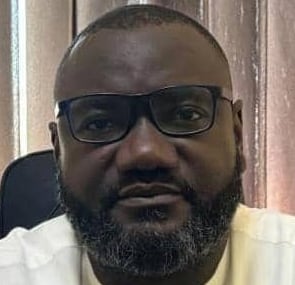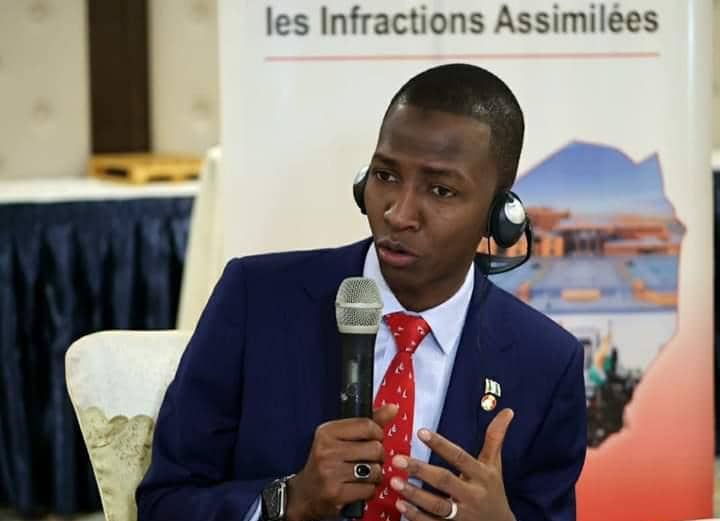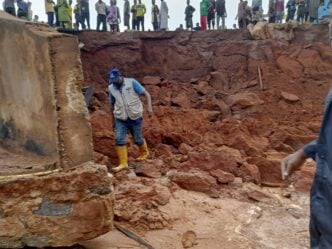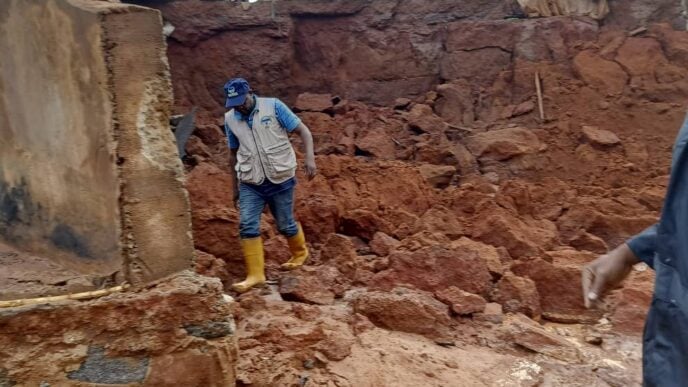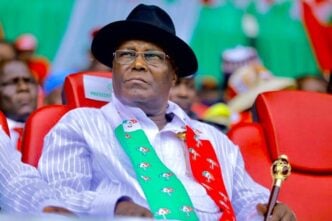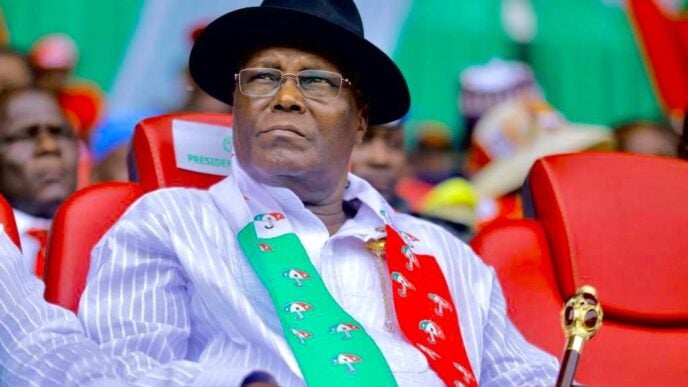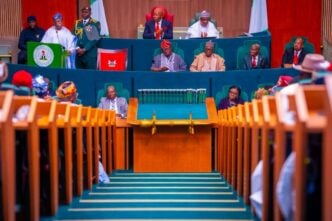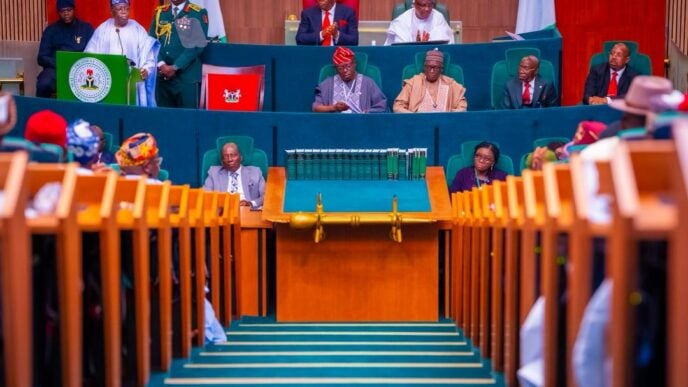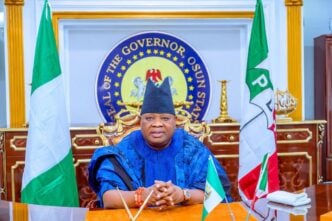Abdulrasheed Bawa
If you are emotional, please don’t read ‘The Shadow of Loot and Losses’ by Abdulrasheed Bawa, the former chair of the Economic and Financial Crimes Commission (EFCC). It is a sad epistle of what happened to the country in the name of petrol subsidy, a regime that saw our commonwealth filtered by several actors, living and dead. A regime that hindered sustainable growth and development. And a regime that bestowed on us poverty and deprivation. Imagine this: in 2006, the subsidy payment was N257.3 billion. In 2007, N271.51 billion. In 2008, N630.57 billion. In 2009, N469.3 billion. In 2010, N667.08 billion. In 2011, N2.10 trillion, and in 2012, N1.35 trillion. You can do the final summation and tell yourself what the petrol subsidy did to us.
The above figures are not mind-blowing. They are breathtaking and were gleaned from the book. The author was a member of the EFCC’s “Special Team on Petroleum Subsidy,” initiated in 2012 to unravel the fraud in the subsidy regime between 2008 and 2012. As the author alluded, the principal culprit is the Petroleum Products Pricing Regulatory Agency (PPPRA), the agency responsible for determining the volume of petroleum products required for imports based on national demand and the supply gap for subsidised products. The leadership of the PPPRA between 2008 to 2012 failed woefully. They know themselves and I don’t need to mention names.
It is common for laudable initiatives to be turned on its head in Nigeria. As highlighted by the author, our weak regulatory framework, lack of robust regulatory mechanisms, and oversight bodies are largely responsible for the perpetuation of fraud in various sectors of our economy. This is the bitter pill that we have to swallow. The author identified nine mechanisms deployed by oil marketers in defrauding the country. He listed them as inflation of imported volumes/quantity, alteration of bill of lading date, non-declaration of over recovery, floating storage vessel, single importation but double subsidy payments, round-tripping, foreign exchange and interest rate differentials, arbitrage: smuggling of subsidized Premium Motor Spirit (PMS) and bridging by air fraud.
He identified the alteration of bill of lading dates as a key aspect of the subsidy fraud regime. The examples of “QQQ Limited and YYY Limited” were distasteful. QQQ Limited altered 20 bills of lading dates across 23 transactions and fraudulently obtained over N900 million from the government and YYY Limited also altered 10 bills of lading dates over 14 transactions and fraudulently obtained over N3 billion from the government. Welcome to Nigeria.
Advertisement
Altering a bill of lading date is an exercise that can only happen with insider collaboration from the PPPRA because it is critical in determining and computing the cost of commodities, particularly the landing cost of Premium Motor Spirit (PMS) and crucial in calculating the subsidy payable to oil marketers or importers. This is the trickiest aspect of the entire subsidy fraud in the sense that even without inflating the volume of PMS imported, the oil marketer can receive extra payment. Hear what the author said about this: “For instance, if an oil marketer imports 10 million litres of PMS with a determined landing cost of N140 per litre, and the ex-depot price is N51.8, the subsidy payment would be (140-51.8) *10,000,000. 88.2*10,000,000 =882,000,000. This example illustrates that any alteration to the landing cost, which is primarily determined by the cost of the product, which in turn depends on the date of the bill of lading directly affects the subsidy payment to the oil marketing company”
After reading this portion of the book, I imagined the number of oil marketers that altered bill of lading dates and the subsequent fraudulent payment received as a result. For example, if an oil marketer alters the date on the bill of lading by a day, the implication is that an oil marketer is guaranteed several hundreds of dollars depending on the number of litres imported. Put conservatively, if in a year, the oil marketer presents 20 bills of lading with altered dates, and it receives N250 million per bill of lading, that would amount to N5 billion. Can you again imagine what the petrol subsidy did to us? I think we are lucky we still have a country. This is just from one oil marketer, and to imagine that in 2011, there were 118 oil marketers in the country. Please don’t try to make up any imagination. Just flip to the next paragraph for mental health’s sake.
What the petrol subsidy has done to us is unimaginable. It has set us back some donkey years. It has impoverished and incapacitated us as a people and a country. The irony was that the country bled profusely under successive administrations, yet those in authority were not bold enough to halt the fraudulent regime. They grandstanded with the retail pump price and postponed the doomsday, which was finally here. As painful as it is, we should be glad that the subsidy regime has ended. It reminds me of a quote by the renowned writer and social critic Lilian Smith, “The truth is what happens. Not what you want to happen. Not what you’re afraid will happen.” Her quote captured our moment during the petrol subsidy regime. We would pay more for PMS. (The truth). We don’t want to pay more. (Not what you want to happen). There would be protests and violence. (Not what you are afraid of happening).
Advertisement
We hid under the “Shadow of Loot and Losses” for too long. It was so because the beneficiaries had political backing. They dined and wined with the powers in high places. It was a very long rope that tied the country from the north to the south and the east and west. As the author stated, “If Nigeria has successfully enhanced its refining, distribution and infrastructure capabilities over 30 years from 1989 to 2019, akin to the developments witnessed in the first 30 years from 1959 to 1989, the country would have achieved a total refining capacity of 890,000 barrels per day, established 44 depots, and implemented a pipeline network spanning 10,000 kilometres. Consequently, this book would not have been birthed, as there would have been no occurrence of petroleum subsidy fraud, given that Nigeria would have been self-sufficient in producing its petroleum products”
If you agree with the position of the author, please give him a thumbs up for ‘Uncovering Nigeria’s Petroleum Subsidy Fraud’.
Views expressed by contributors are strictly personal and not of TheCable.
